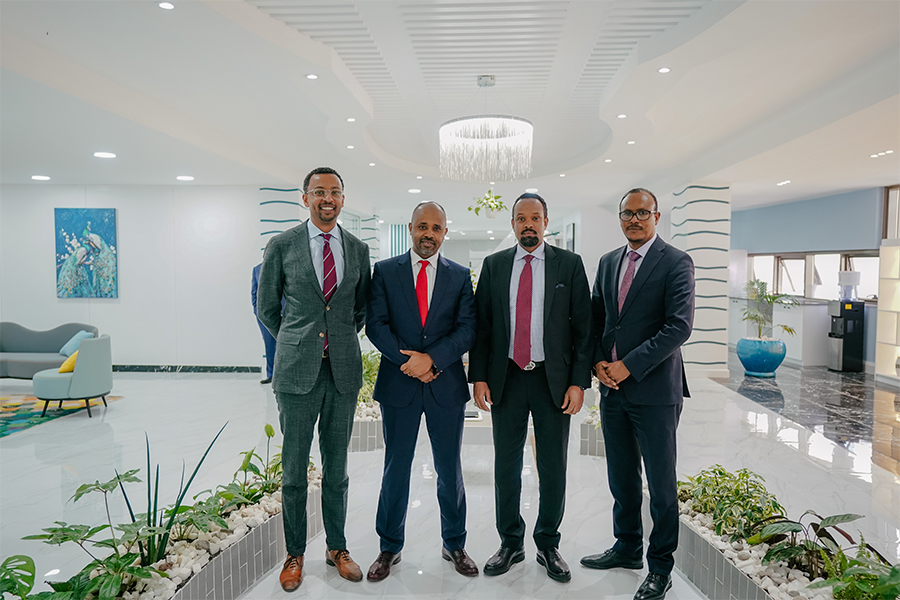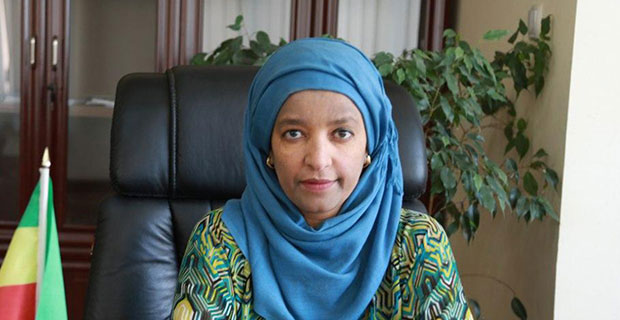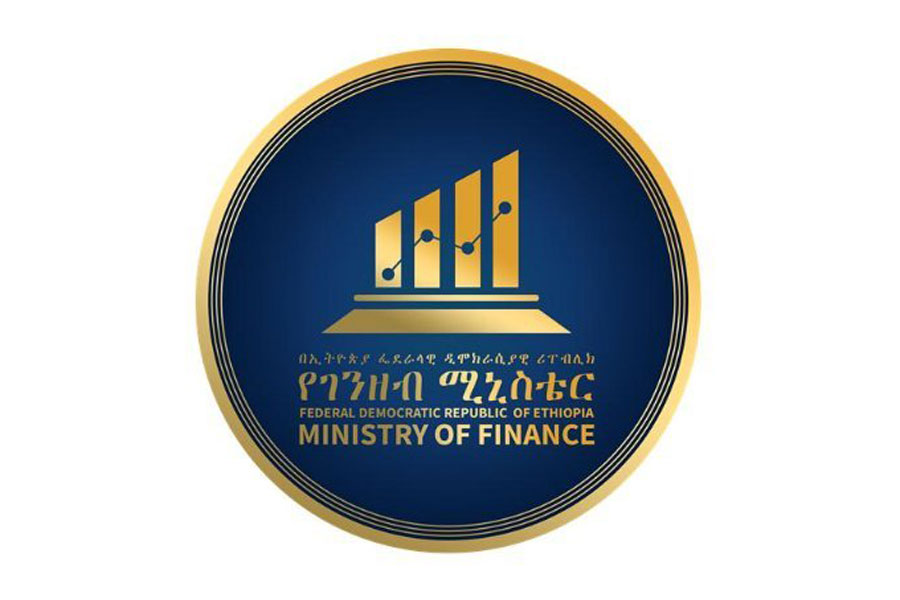
Fortune News | Aug 14,2022
Oct 15 , 2022.
Last week saw a milestone in Ethiopia's telecom industry. For over a century, the industry has been the sole domain of the state-owned Ethio telecom, with a captive market. Safaricom Ethiopia Plc has made history by becoming the first private telecom operator. It will go down in history as a landmark moment in the long saga of opening up the broader economy.
For 50 years, the Ethiopian state overshadowed the national economy. It is a legacy of the revolution in the mid-1970s that brought an ancient monarchy to an end. The road to liberalising many sectors of the economy has been arduous and too slow to earn the title "reform". However frustrating, opening up the economy began with liberalising the financial sector to domestic private capital in the mid-1990s, and the first generation of privatisation was launched subsequently.
Liberalising the sectors where state-owned companies controlled the economy's commanding heights met strong ideological resistance from the EPRDF regime. However, the last four years were a rollercoaster in the liberalisation episode. The speed with which laws are changed, regulations rewritten, and policies recrafted to allow foreign capital in the financial sector, establish a capital market and let foreign investments in the telecom sector is astounding.
Safaricom Ethiopia can be seen as an embodiment of the zeal and speed of these reforms on the economic policy front.
The International Finance Corporation, a member of the World Bank Group, has invested 160 million dollars in the Safaricom Ethiopia Plc consortium. Kenya's government (through Safaricom) has 35pc ownership, equal to Vodacom's. The UK's Vodafone claims five percent shares, with the remaining 25pc owned by Japan's Sumitomo Corporation and retail investors. Companies from Kenya, South Africa, Japan and the United Kingdom have mobilised international capital to have a place in Ethiopia's fledging telecom sector.
Launched two weeks ago in the presence of Kenya's President William Ruto and Prime Minister Abiy Ahmed, Safaricom Ethiopia also became the second company to be granted a permit to operate its internationally acclaimed mobile money platform. Minister of Finance, Ahmed Shide, announced - somewhat unexpectedly - M-PESA can go operational in Ethiopia. It remains controversial whether Ahmed has the mandate to give the permission. However, M-PESA would be a significant coup for Kenya's telecom giant.
But it will also be tasking for Balcha Reba and his team of regulators at the Ethiopian Communications Authority (ECA).
The Authority was reestablished while legislation on transactions through electronic platforms was passed, allowing public and private companies to offer services digitally. The central bank has permitted domestic non-financial institutions to provide mobile banking solutions. It has been one opening-up and policy reform after another.
The returns have been visible. Mobile payment transactions have grown, streaming services have come onto the scene, the commercial industry is beginning to move online, and taxi-hailing and delivery services have mushroomed. Start-ups are innovating new products and services as they rush to sign-up more users and build communities around their hubs.
The benefit goes to the consumer public. Competition empowers consumers so long as it is fairly and efficiently regulated. Balcha and the regulators under his command have an exciting but challenging time ahead in disciplining powerful and resourceful corporate executives to behave. Their task is unlikely to be easier for these companies are at the cusp of convergence between communications and finance.
The federal government wants to open up the financial sector for foreign capital as it has done in the telecom sector. The experience in liberalising telecom can serve as an ideal lesson for the financial sector. It may be too early to judge. However, a good lesson of telecom liberalisation goes beyond consumer empowerment. Bringing on more actors in the economy creates opportunities for the state in new revenues and employment for members of the public. Many companies have benefited from supplying goods and services to help Safaricom Ethiopia stand up on its feet.
Telecoms liberalisation benefits countries directly through lower call charges and a better range of services. Indirectly, they gain from opportunities for business development and economic growth created by a fully developed communications infrastructure.
Undoubtedly, allowing foreign capital and skilled bankers into the country improves its competitiveness. The lesson from countries that have gone through meaningful reforms in the financial sector shows how remarkable the results were. Economies with fully liberalised financial and telecom services perform better than those that have not. Half a century down the road, Ethiopia's economy is at the edge of such exciting opportunities.
Opening the telecom and financial markets to domestic and international competition has rarely proven smooth. There are vested interests that may resist the changes, instead preferring to preserve the status quo.
Ethio telecom has the most to gain from the competition and the expansion of the digital economy. But, it is also at risk of losing market share if it fails to compete vigorously.
The authorities have already limited investment by independent cell tower companies, granting preferential treatment to Ethio telecom. Policies that seek to protect Ethio telecom's infrastructure by allowing it to charge high prices for interconnection and forcing its competitor to use the infrastructure provided by Ethio telecom. This may slow down network rollout, particularly in rural areas. Ultimately, such moves and policies will end up harming Ethio telecom.
Safaricom Ethiopia could be Ethio telecom's biggest customer if prices are set fairly. Ethio telecom has the potential to become a regional powerhouse, but only if it is well-prepared for the competitive environment. Benefiting from competition does not mean offering preferential treatment to Ethio telecom but instead creating a level playing field on which it can compete fairly. A better strategy would be to encourage Firehiwot Tamiru and her executives at Ethio telecom to compete fairly. Safaricom Ethiopia should be unconstrained in providing mobile money services without ownership restrictions.
The vitality of competition in the telecom sector could serve as a piloting platform to pave the way for exposing the domestic financial sector to international competition in the public's interest.
PUBLISHED ON
Oct 15,2022 [ VOL
23 , NO
1172]

Fortune News | Aug 14,2022

Fortune News | May 04,2019

Fortune News | Jan 05,2020

Commentaries | Apr 04,2020

Fortune News | May 23,2021

Exclusive Interviews | Jan 05,2020

Fortune News | Jul 03,2024


Fortune News | Jun 05,2021

Fortune News | Mar 04,2023

Photo Gallery | 179919 Views | May 06,2019

Photo Gallery | 170115 Views | Apr 26,2019

Photo Gallery | 161101 Views | Oct 06,2021

My Opinion | 137231 Views | Aug 14,2021

Dec 22 , 2024 . By TIZITA SHEWAFERAW
Charged with transforming colossal state-owned enterprises into modern and competitiv...

Aug 18 , 2024 . By AKSAH ITALO
Although predictable Yonas Zerihun's job in the ride-hailing service is not immune to...

Jul 28 , 2024 . By TIZITA SHEWAFERAW
Unhabitual, perhaps too many, Samuel Gebreyohannes, 38, used to occasionally enjoy a couple of beers at breakfast. However, he recently swit...

Jul 13 , 2024 . By AKSAH ITALO
Investors who rely on tractors, trucks, and field vehicles for commuting, transporting commodities, and f...

Nov 2 , 2025
The National Bank of Ethiopia (NBE) has scrapped the credit-growth ceiling that had s...

Nov 2 , 2025 . By SURAFEL MULUGETA
The burgeoning data mining industry is struggling with mounting concerns following th...

Nov 2 , 2025 . By YITBAREK GETACHEW
Berhan Bank has chosen a different route in its pursuit of a new headquarters, opting for a transitional building instea...

Nov 2 , 2025 . By BEZAWIT HULUAGER
Nib International Bank S.C. has found itself at the epicentre of a severe governance...